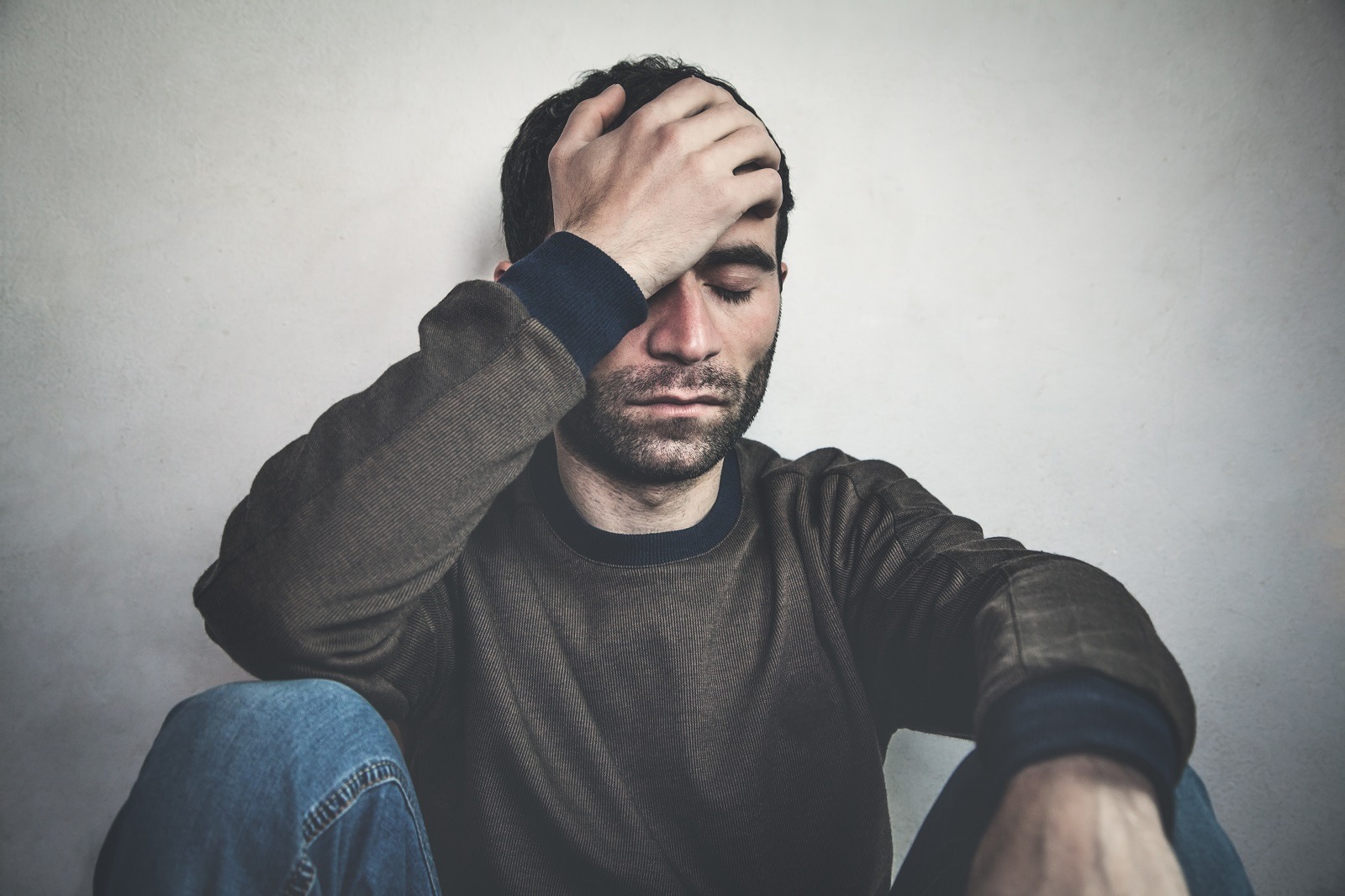Withdrawal | 4 min read
How Long Does Alcohol Withdrawal Last?
Medically Reviewed By

On December 26, 2022
Written By
On December 26, 2022

Alcohol use disorder, a persistent condition that limits your ability to stop or control drinking, affects 14.1 million adults in the United States in 2019[1]. Your brain chemistry gradually changes when you consume large amounts of alcohol regularly to counteract the effects of alcohol.
Alcohol depresses the central nervous system, so your brain has to work harder to maintain alertness and counteract its effects. As a result, your brain can become overstimulated when you abruptly quit drinking because it remains alert, and symptoms of physical or mental health may appear. We refer to this as alcohol withdrawal.
How Alcohol Affects The Brain and The Body
Alcohol can change how the brain functions and looks by interfering with the brain’s communication networks. Alcohol impairs the function of the brain regions in charge of balance, memory, speech, and judgment, increasing the risk of accidents and other unfavorable outcomes.
Most people with alcohol use disorder experience bodily symptoms. These signs and symptoms represent the disease’s outward expression and can differ from person to person. Signs include facial redness, weight changes, yellow skin, unstable blood pressure or heart rate, disheveled appearance, and lack of coordination.
Hallmarks Of Alcohol Withdrawal
Alcohol withdrawal is one of the most obvious indications of alcohol dependence. [2]
Alcohol withdrawal refers to the physiological changes that occur when a person abruptly quits drinking after engaging in heavy and frequent alcohol use. The body and the brain eventually get dependent on drinking habits and frequency. When you stop drinking suddenly, your body becomes accustomed to the effects of alcohol and needs some time to get used to life without it.
Alcohol withdrawal can give distinct signs and symptoms. A person experiencing alcohol withdrawal may encounter the following:
- Sweating
- Tremors
- Insomnia
- Nausea
- Vomiting
- Hallucinations
- Anxiety
- Restlessness
- Irritability
- Seizures
Depressive symptoms like delirium tremens, hallucinations, and seizures are the most severe of alcohol withdrawal. These symptoms result from chemical imbalances in the brain brought on by alcohol that, when removed, result in increased neuronal activity.
Alcohol Withdrawal Timeline
When a person physically dependent on alcohol abruptly quits drinking or significantly lowers their consumption, they experience alcohol withdrawal.
Variables That Impact Alcohol Withdrawal Timeline
Depending on several variables, what happens to your body when you stop drinking alcohol may vary. Other factors like age, alcohol tolerance, gender, weight, and length of alcohol use disorder all contribute to how long withdrawal lasts. The severity of alcohol withdrawal will vary amongst people depending on their physiological alcohol dependence.
First Phase
The first phase of alcohol withdrawal takes place within the first 12 hours of your last drink. The result of stopping alcohol when struggling with alcohol use disorder involves a series of undesirable side effects.
The first phase includes symptoms of
- Agitation
- Tremors or shaky hands
- Nausea
- Sleep disturbances
- Heightened anxiety
This stage can last up to a week after your last drink.
Second Phase
The second phase of alcohol withdrawal takes place within the next 48 hours after your last drink. The most crucial and dangerous part of the withdrawal period is the first few days after you stop drinking.
The second phase includes the risk of seizures and symptoms from the first phase. It is important to seek medical help through your withdrawal or detox due to the severity of your experience.
At this stage, alcohol withdrawal symptoms peak between 24 and 72 hours after your last drink.
Third Phase
About 50% of individuals who experience withdrawal seizures will develop delirium tremens. Most persons with DTs do so 48 to 72 hours after quitting drinking. Delirium tremens symptoms progress from earlier withdrawal symptoms rather than appearing out of nowhere.
You must get medical attention during this phase, particularly if you’re exhibiting DTs symptoms.
Symptoms of delirium tremens [3] include:
- Confusion
- Irritability
- Loss of consciousness
- Hallucinations
- Seizures
This phase lasts between 48 and 72 hours, but you may be at risk of delirium tremens for up to a week after your last drink.
Fourth Phase
After stopping drinking, some persons who go through alcohol withdrawal may experience symptoms for weeks or even months. Post-acute withdrawal syndrome, or PAWS, is the term used for this. PAWS symptoms include persistent sleep issues and emotional issues.
The fourth stage of alcohol withdrawal may continue anywhere between six months and two years.
Alcohol Withdrawal Treatment Options
Going through alcohol withdrawal can be an intense, uncomfortable experience. The process can make you feel vulnerable and alone. Thankfully, there are treatment options to help you get through it.
Residential Rehab
Attending rehab for alcohol use disorder will get you through your withdrawal and into alcohol detox.
The most important thing is to ensure your alcohol detoxification experience is safe because alcohol withdrawal symptoms can be very severe. Full-time staff members monitor your health before and during detox to ensure you always have access to assistance, medication, and knowledge.
By entering an addiction treatment facility, you can be confident that any demands will be met as soon as they arise and that the best drugs will be used to treat your alcohol withdrawal discomfort when you need them.
Partial Hospitalization/Outpatient
While providing a high level of care, partial hospitalization programs (PHPs), also referred to as day treatment programs, are addiction recovery programs that permit patients to go home each night following treatment. The treatment intensity and daily schedule of PHPs are comparable to those of inpatient/residential programs. These courses typically meet five days a week for 4-6 hours.
Recover From Alcohol Use Disorder With Support
Those experiencing alcohol use disorder may go through alcohol withdrawal when trying to quit drinking. If you are looking to stop your out-of-control alcohol consumption, know that support is here for you.
Contact us today to find out how an alcohol addiction treatment center can help you regain control of your life.
Alcohol Withdrawal FAQs
Some signs, such as changes in sleeping patterns, exhaustion, and mood swings, might last for weeks or even months after you stop drinking. However, five to seven days after quitting drinking, you should start to feel better.
The most severe symptoms of alcohol withdrawal include delirium tremens, hallucinations, and seizures. Alcohol causes chemical imbalances in the brain that lead to these symptoms.
Alcohol withdrawal syndrome (AWS), a collection of physiological and psychological issues that develop when excessive or protracted drinking stops, is characterized by sudden onset symptoms such as shock.
Shock is frequently a symptom of alcohol use disorder.
Stopping alcohol abruptly can result in severe withdrawal symptoms and can be life-threatening. If you or a loved one are attempting to detox from alcohol, seek medical advice before halting your alcohol intake.
The following are some of the most typical signs of alcohol addiction: experiencing momentary memory loss or blackouts, extreme alcohol cravings, displaying signs of excessive mood swings and irritation, and making justifications for drinking, such as the need to unwind, manage stress, or feel normal.
If you are asking yourself if you are struggling with alcohol abuse, you may have a problem. It’s important to seek treatment from substance abuse professionals before you lose control.
Due to the severity of symptoms that onset after quitting alcohol where there was once long-time use, seek medical attention for alcohol withdrawal.
Getting support from a substance use disorder treatment facility will get you through the worst of your symptoms and respond quickly should you turn for the worse.
Symptoms of alcohol withdrawal should subside after about 7 days. However, some residual effects may last up to two years for post-acute withdrawal syndrome.
Ascendant New York Editorial Guidelines
Here at Ascendant New York, we understand the importance of having access to accurate medical information you can trust, especially when you or a loved one is suffering from addiction. Find out more on our policy.
- National Institute on Alcohol Abuse and Alcoholism.(n.d.). Understanding alcohol use disorder. Retrieved from https://www.niaaa.nih.gov/publications/brochures-and-fact-sheets/understanding-alcohol-use-disorder#:~:text=According%20to%20a%20national%20survey,had%20AUD%20during%20this%20timeframe on 2022, December 29
- Newman, R.K., Stobart Gallagher, M.A., Gomez. A.E. National Institute on Alcohol Abuse and Alcoholism. (2022, August 29). Alcohol withdrawal. Retrieved from https://www.ncbi.nlm.nih.gov/books/NBK441882/ on 2022, December 29
- Rahman, A., Paul, M. National Library of Medicine. (2022, August 22). Delirium tremens. Retrieved from https://www.ncbi.nlm.nih.gov/books/NBK482134/ on 2022, December 29





